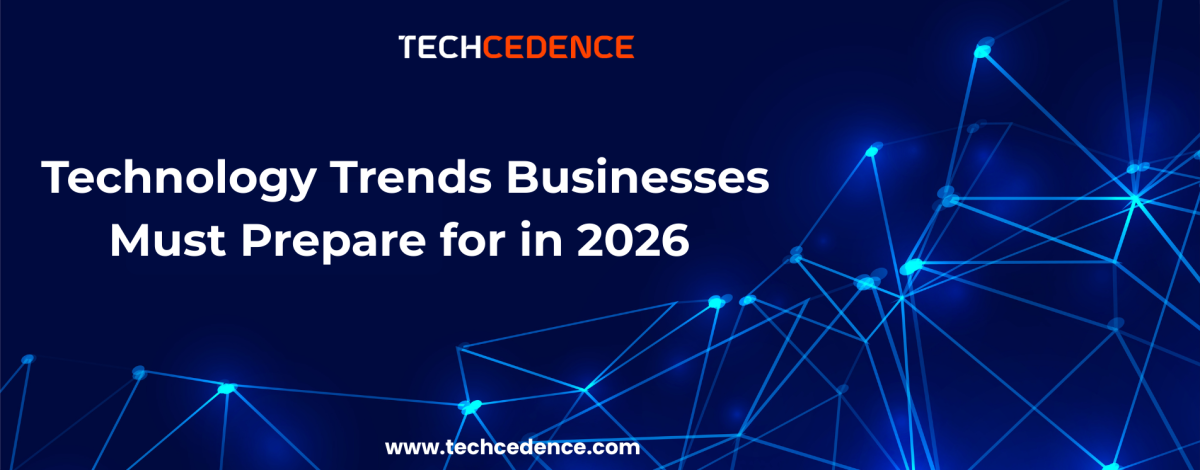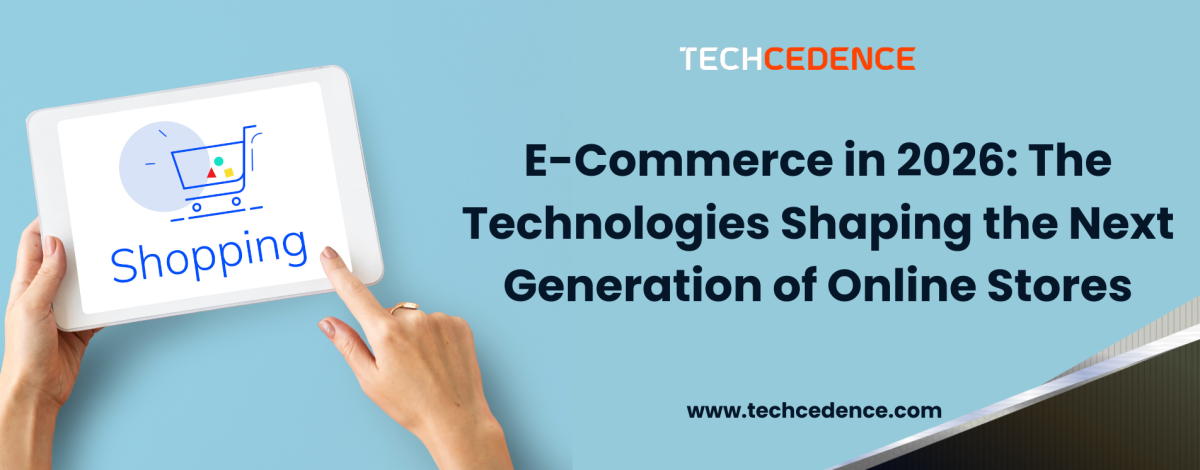The pace at which technology is being adopted by organizations is much quicker than organizations can prepare for. What used to be optional tools for organizations has now started to become an absolute necessity for daily operations, decision support, and customer interaction. The shift in technology being adopted by organizations will be clearly noticed in 2026, when many technologies have transitioned from experimental to widespread usage.
The biggest difference in 2026 is the level of maturity. Artificial intelligence, automation, data platform technologies, and cloud infrastructure solutions are no longer emerging in trend lines; rather, they are becoming part of the ‘how’ for almost every business. The sooner businesses recognize and understand these changes, the better positioned they will be to adapt and scale their utilization of these technologies in order to stay competitive in today’s marketplace.
Artificial Intelligence Becomes Embedded, Not Optional
Businesses will stop using artificial intelligence (AI) as a separate tool but will have AI embedded directly in the systems, processes, and daily tasks they do. Instead of companies only using AI for separate tasks, many companies will use AI to assist in making decisions, automating work, and improving efficiency for all departments.
As AI is integrated into all business operations, it will begin operating in the background, where it can continuously monitor and analyze large amounts of data, predict probable outcomes, and recommend decisions based on this analysis without requiring any human assistance. This shift will enable companies to be more responsive to changes in their environments on an expedited basis by reducing manual labor and providing companies with better information for making decisions. Companies that consider AI to be a critical tool for operation will outperform companies that do not and consider AI as an additional tool.
Automation Expands Across Business Operations
By 2026, automation will evolve from simply performing tasks to supporting all key operational areas within an organization. Workflow automation will allow companies to reduce cycle times, decrease transactional delays, and use fewer manual processes. Automation will support harmony between departments by automating such functions as approvals, submitting reports, interacting with clients, and uploading files into systems.
The evolution of automation will enable an employee to spend more time on value-added tasks instead of performing repetitive tasks. Automated systems will continue to help improve efficiency and decrease mistakes when companies grow, as they allow companies to maintain the same levels of speed and consistency while avoiding the complexities associated with higher operational scales. A company that embraces intelligent automation early can expect to have fewer mistakes, increased productivity, and superior performance across its organization.
Cybersecurity Moves from Protection to Prevention
The future of cybersecurity is moving toward a proactive approach in which risks are identified before any harm can happen. Organizations are increasingly using more predictive security models to detect risks early and respond in real-time. Automated responses and continuous surveillance will replace many traditional, reactive methods of securing information systems.
In addition, security will become a part of business strategy and not solely the responsibility of recognized expertise within an organization. As the number of digital interactions increases, trust in an organization will become increasingly important in making purchasing decisions by customers. Businesses that take advantage of and invest in proactive security techniques will improve their system’s level of protection and enhance the businesses’ ability to be trusted.
Data Becomes the Core Business Asset
Data will evolve from its traditional supporting role to becoming an integral part of the business. Businesses will leverage real-time data to inform business decision-making and improve business results by responding quickly and effectively to changes. Historical reporting will continue to be relevant; however, predictive analytics that provide foresight into future outcomes will have a greater influence on business planning.
The ease of accessing data will improve, allowing all employees an opportunity to work with data-driven insights directly instead of relying on specialized teams. An increasing number of organisations will adopt data-driven decision-making processes, providing them with a greater opportunity to grow their business while continuing to manage the growth of their businesses, achieve operational efficiencies, and improve customer experiences.
Cloud and Edge Computing Mature Together
As cloud computing evolves into a part of a larger ecosystem that includes edge computing, the combination of these technologies allows for faster processing and provides users with real-time experiences. By providing large-scale storage and analytics capabilities, cloud-based applications can store large amounts of data and perform analysis. However, edge-based applications allow users to process data closer to where it was originally generated, thus minimizing latency.
Together, the combination of these two types of environments will enable businesses to use hybrid environments for speed, reliability required for devices that connect to them, or real-time monitoring of their activity and that of other devices connected to them. Businesses can achieve an overall better business outcome by adopting a hybrid environment.
Low-Code and No-Code Platforms Gain Enterprise Trust
Enterprises will increasingly adopt low-code and no-code platforms. These low-code/no-code platforms facilitate rapid application creation and modification with less development effort. As organizations improve their governance and security practices, they will gain confidence in adopting these tools for critical workloads.
This will create deeper collaboration between businesses and IT. Custom application development will continue to be necessary for complex systems; however, low-code/no-code platforms will enable organizations to expedite delivery and subsequently reduce the backlog of applications, thereby enabling faster innovation for the company.
Interoperable Systems Replace Isolated Platforms
Businesses will shift away from using isolated systems for their operations. Instead, they will create connected ecosystems with platforms that feature integrated application programming interfaces (APIs) and connections, which will break down silos and enhance operational efficiencies. This connectivity will enable businesses to quickly respond to changes and stay competitive by being adaptable and flexible.
Additionally, interoperable systems will facilitate the movement of information among teams and tools, thereby improving collaboration. When teams can access the same data quickly and accurately, they can make timely and effective decisions.
Conclusion
The main technologies expected to dominate by 2026 are already very familiar, but the emphasis has changed from testing the technologies to implementing them at scale. Many companies are using Artificial Intelligence, Automation, Data Systems, Cloud-based Infrastructure, and Connected Platforms as core parts of their everyday operations. Thus, instead of focusing on experimentation, businesses will put their focus on implementing these technologies in ways that enable reliable and effective execution at scale.
By making investments in these technologies with a clear intent, organizations will have the capacity to become adaptable and grow while remaining competitive. What companies are going to do in 2026 is how well they incorporate these trends into their processes and methodologies, rather than how quickly they introduce those technologies.









